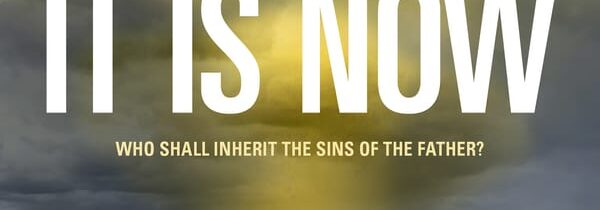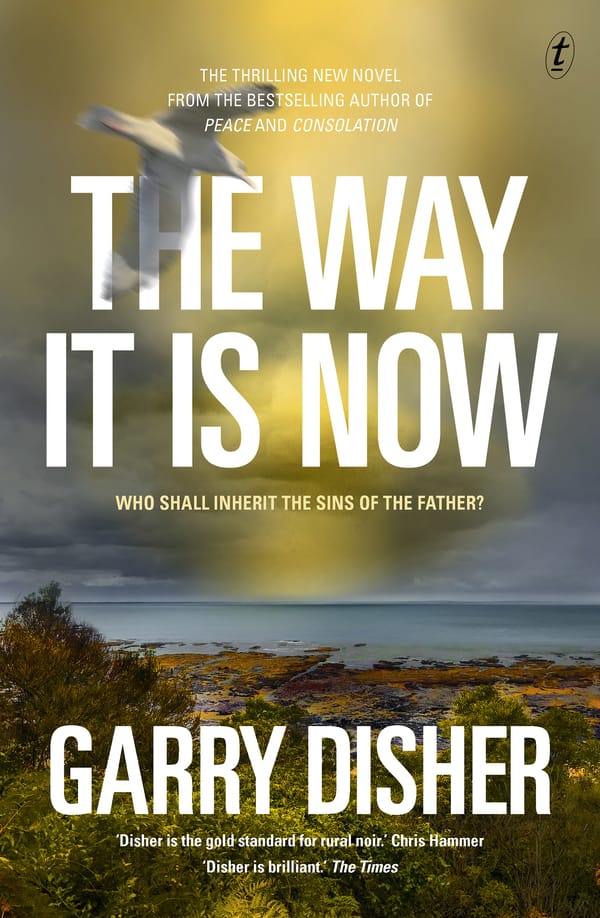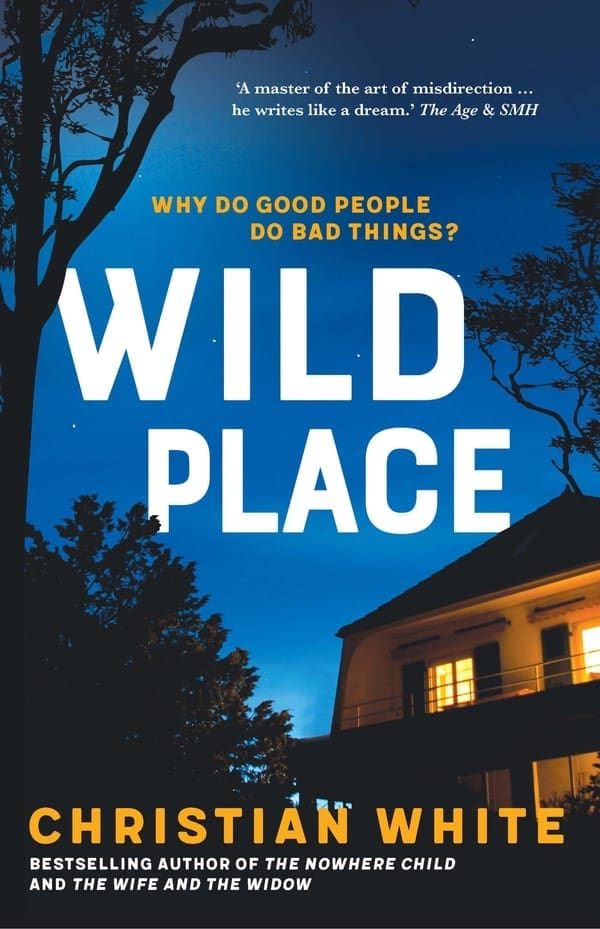AUSTRALIAN CRIME FICTION: GARRY DISHER and CHRISTIAN WHITE
November brings us new releases by the last two winners of the Ned Kelly Award for Best Novel, Garry Disher and Christian White, both of which are set on Victoria’s Mornington Peninsula.
Veteran Australian author Garry Disher has been serving up excellent crime novels since the early 1990s when the first of his books about the professional thief known only as Wyatt, Kickback, appeared. Since then he has produced another eight books in the Wyatt series and seven about Mornington Peninsula police detective Hal Challis. More recently, Disher has written three excellent novels about about struggling South Australian rural policeman Constable Paul Hirschhausen, the most recent of which, Consolation, won the 2021 Ned Kelly Award for Best Crime Novel.
Now with his latest book, The Way It Is Now (Text), Disher heads off in a new direction with another great lead character.
Charlie Deravin is back living in his family’s holiday house on the Mornington Peninsula. On forced leave from the police sex-crimes unit, after he made a mess of things at work, Deravin is trying to reshape his life. With time on his hands he decides to refresh his never ending investigation into his mother’s disappearance. Twenty years ago his mother went missing from the local area, believed murdered. His father, a former policeman, has always been the main murder suspect, though her body was never found. Now as Deravin starts poking into the old case, new evidence comes to light and he finds that re-opening old wounds can be dangerous.
This is a another well-crafted crime novel by Disher, which excels in its characterisations and the subtlety of it plotting. The story takes a little time to get underway, but once the main elements are in place the pace picks up and the book moves in interesting and unexpected directions. Disher keeps a good grip on the various strands of the plot and he skillfully builds the tension as the different parts come together in a tense and exciting conclusion.
As with all of Disher’s novels, the depiction of the semi-rural, beach locale rings true and he skillfully mixes together lyrical descriptions of the natural environment with stinging critiques of the human inhabitants, creating a captivating milieu.
The characterisations are also very good and multi-faceted. The local inhabitants are portrayed in a honest, clear manner and Disher skillfully captures the complexity of relationships, especially between family members. The contrast between the local police and the detectives from Melbourne is also nicely portrayed and Disher excels in his vivid physical descriptions, even of minor characters:
He was one of those older men who seemed cobbled together from many men. Little pot belly, skinny shanks, eyes wide apart, gristly ears and a neat nose; pianist’s fingers. Out of his ranger’s uniform his forehead was ghostly white, his forearms and legs like old leather.
Deravin is a very well-rounded character. Sufficiently different from Disher’s other detectives, he can be astute and determined, but he is also capable of making stupid mistakes and is no super hero. He is a very convincing portrait of a good man wracked by uncertainty and past scars.
Fleshing out the book are Disher’s usual clear eyed observations on a range of topical issues from sex crimes to the beginning of the COVID pandemic, including this telling description of the jury in a rape case involving a popular footballer:
the jury was stacked with older women unsympathetic to young women who cried rape when they got themselves into trouble. They’d said things like, ‘We all know what little missy gets up to of a weekend.’ And that old classic: ‘Boys will be boys,’
In all, The Way It Is Now is a very impressive piece of crime fiction. It holds attention, and impresses with its depth and reflections. The plotting is masterful and the book entertains while raising serious issues. Another potential award winner for Disher!
Four and a half stars out of five!
The Way It Is Now will be published by Text Publishing on 2 November 2021. Thanks to the publisher, NetGalley and the Canberra Weekly for an advanced copy of the book for review.
Christian White won the 2020 Ned Kelly Award for his last novel, The Wife And The Widow, and more recently he has garnered praise for his screenplay for the popular Netflix series Clickbait.
Wild Place is his third novel and is another dark journey into the underbelly of Australian suburbia.
Set in December 1989, it revolves around the disappearance of a local teenage schoolgirl from the idyllic Australian suburb of Camp Hill. As rumours of Satanic rituals swirl, schoolteacher Tom Witter becomes convinced he holds the key to the disappearance. When the police won’t listen to his theories, he takes matters into his own hands with the help of the missing girl’s father and a local neighbourhood watch group. Things, however, quickly spiral out of control and Witter soon finds himself questioning the innocence of the suburban life he thought he knew so well:
“He had pierced an invisible barrier that surrounded suburbia and stepped through it. He could see too clearly now, from the outside looking in.”
The opening sections require some patience, but about a third of the way in the pace of the story picks up before heading in a totally unexpected direction. The rest of the book is a wild ride through some dark recesses of suburban life, with plenty of twists and turns and a thudding conclusion.
The characters and dialogue are convincing and believable, and White readily takes the reader back to 1989 with all its attitudes and paraphernalia. The plotting is tight and it unfolds with the clockwork precision that we have come to expect from White.
At the core of the book is the so-called ‘Satanic Panic’ of the late 1980s and the hysteria and moral outrage that went with it. White has said that he has always been fascinated by the ‘Satanic Panic’, but thought that it just seemed so silly, until he experienced the COVID-19 pandemic and witnessed how quickly wild conspiracy theories emerged and grew: “I was witnessing the natural evolution of Satanic Panic.”
The social background to Wild Place is interesting, but ultimately it is the twists and the darkness that will stick in your mind. Much like Harlan Coben’s suburban crime novels, but with a tougher edge, Wild Place shows that the local schools and homes of suburbia can be just as dangerous as the mean streets of any large city.
Four stars out of Five!
Wild Place was released on 26 October 2021 by Affirm Press. Thanks to the publisher and NetGalley for an advanced copy of the book.




Snap! I am currently reading ‘The Way it is Now’, and have finished ‘Wild Place’. Great reviews, Jeff, of two engrossing reads.